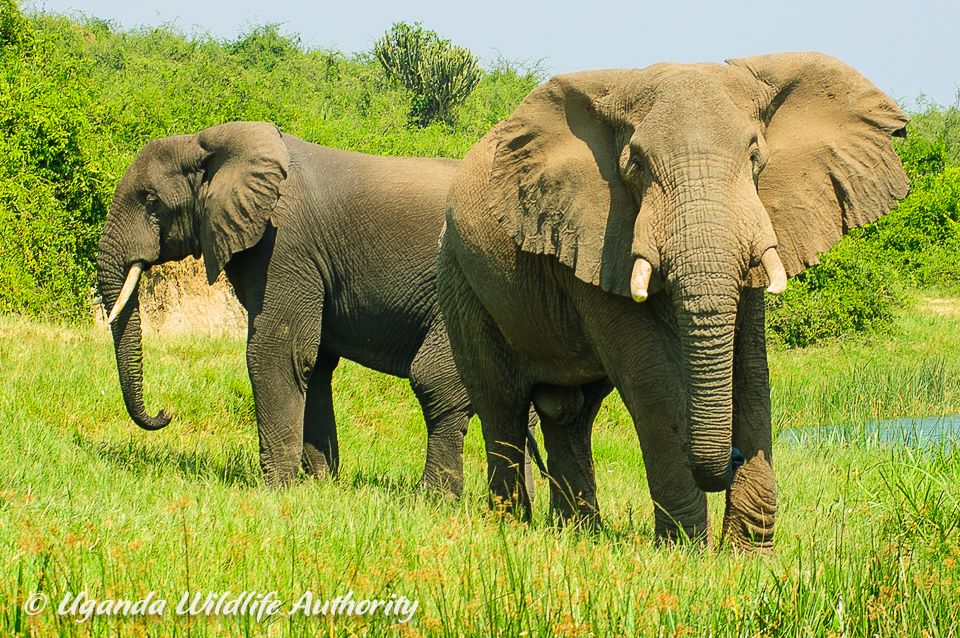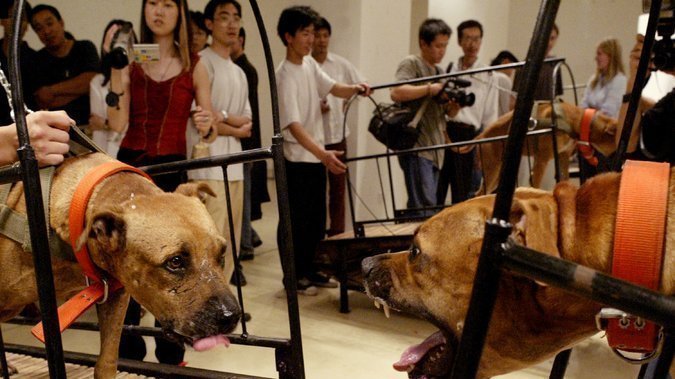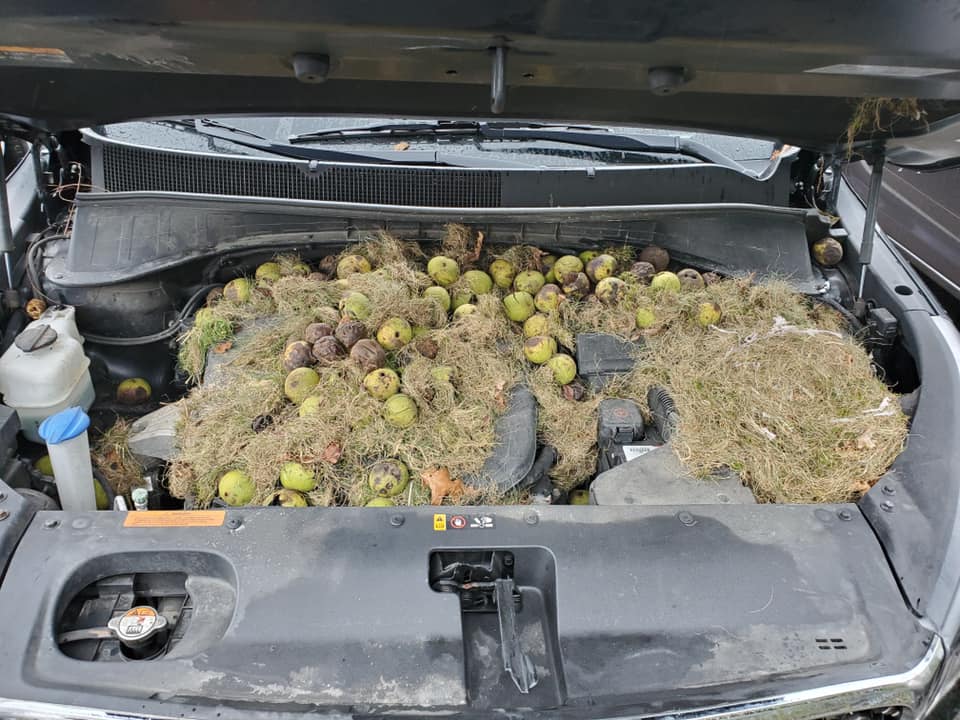Nov. 17 Update:
U.S. President Trump backtracks, posting this tweet.
Put big game trophy decision on hold until such time as I review all conservation facts. Under study for years. Will update soon with Secretary Zinke. Thank you!
— Donald J. Trump (@realDonaldTrump) November 18, 2017
And then on Nov. 19, he tweets again:
Big-game trophy decision will be announced next week but will be very hard pressed to change my mind that this horror show in any way helps conservation of Elephants or any other animal.
— Donald J. Trump (@realDonaldTrump) November 19, 2017
Though, honestly it’s not clear what that means. Trophy hunting back on or still off?
***
The Trump administration has lifted a ban on sport-hunted trophies from elephants killed in Zimbabwe saying that sports hunting benefits conservation.
The move has outraged conservation groups and even some conservative commentators who called the administration’s move a setback to efforts to keep elephants safe from poachers.
Thank you Laura, this is where your common sense would come into play if you were part of the @realDonaldTrump administration. Make a call, tell the President this is not alright. And yes, I am a Trump supporter.
— COOLMARES (@cfpalmer8) November 16, 2017
On November 17, 2017, the U.S. Fish & Wildlife Service will begin issuing permits to allow the
import of sport-hunted trophies from elephants hunted in Zimbabwe, on or after January 21, 2016, and on
or before December 31, 2018, for import permit applications that meet all other applicable requirements.
At this time, a suspension on the import of sport-hunted trophies from elephants hunted in Tanzania
remains in place, according to the service. The previous Obama administration announced a suspension on the import of elephant trophies from Zimbabwe on April 4, 2014.
Sport hunting, as part of a sound wildlife management program, can provide benefits to conservation,” the service said.
The service said since the ban three years ago, changes have been made by the Zimbabwe government.
We are now able to find that African elephant trophy hunting in Zimbabwe will enhance the survival of the species in the wild.
In previous findings in which we were unable to make a positive enhancement finding, the service outlined specific concerns about Zimbabwe’s elephant hunting and management programs. All of these concerns have been addressed as follows, according to a statement of the service’s website.
• Elephant management plans:
o Previous findings: Available information showed unclear progress toward goals and objectives of Zimbabwe’s elephant management plan, which consisted primarily of two outdated documents (1996 and 1997).
o What’s changed: On January 21, 2016, Zimbabwe adopted the Zimbabwe National Elephant Management Plan (EMP) that replaced the two previous outdated documents. The EMP incorporates an adaptive management framework with higher-level targets, key components, strategic objectives, and outputs. The plan also identifies measurable outcomes and timelines
so that Zimbabwe’s Parks and Wildlife Management Authority (ZPWMA) can monitor the success of the management plan and address newly emerging concerns and long-term management needs. The EMP was developed with input from a broad range of stakeholders, including government officials, rural community leaders, safari outfitters, landowners, and non-governmental organizations.
• Population status:
o Previous findings: The Service had inadequate information to confirm the status of Zimbabwe’s elephant population.
o What’s changed: In 2014, the Pan African Aerial Elephant Survey (http://www.greatelephantcensus.com/), or the Great Elephant Census (GEC), was carried out over a significant portion of the savanna elephant’s range in Africa. This survey provided
ZPWMA with a better population estimate to assess future hunting quotas, management fforts, and anti-poaching activities. Both the GEC and a 2016 report from the IUCN African Elephant Specialist Group estimate the elephant population in Zimbabwe to be more than 80,000 elephants. These results are more reliable and provide a better basis under the newly
adopted EMP for establishing management priorities than previously available information.
• Hunting quotas:
o Previous findings: The Service had not received sufficient information on how hunting quotas are established and whether other forms of offtake, such as poaching and problem animal control, were taken into account.
o What’s changed: With the establishment of the EMP, there appears to be a more systematic, scientific approach to establish national quotas. ZPWMA starts with a quota of 500 elephants. Before dividing this quota among safari outfitters and landowners, they consider the results of the GEC survey and any subsequent surveys, results from research efforts, the size of the hunting area in relation to elephant habitat requirements, illegal off-take and other forms of off-take, how hunting areas are managed in relation to land use or fencing, human-wildlife conflicts that have occurred previously, and recommended sustainable off-take levels developed based on ecological assessments of the hunting area. This information is then
further evaluated in light of other species within the hunting area, past elephant trophy quality, and community benefits of proposed harvests.
• Revenue generated from sport hunting:
o Previous findings: The Service did not have current information on how funds generated from elephant sport-hunting are utilized and could not confirm whether revenue generated through sport hunting actually provided an incentive to local communities to conserve elephants.
o What’s changed: On communal lands in Zimbabwe, the protection of elephants falls primarily under the Communal Areas Management Programme for Indigenous Resources (CAMPFIRE), which encourages reductions in human-elephant conflicts through conservation-based community development. CAMPFIRE has provided more information on how their programs support the conservation of elephants and provide benefits to and promote greater tolerance of wildlife in rural communities. An overarching analysis of CAMPFIRE, supported by a grant of 12 million Euros from the EU, is currently being
conducted and is scheduled to be completed by the end of 2017. The Service will request a copy of the EU funding review of CAMPFIRE that should be finalized by the end of 2017.
Despite the justification made by the U.S. Fish and Wildlife Service, the move has outraged conservation groups like The Elephant Project.
Reprehensible behaviour by the Trump Admin. 100 elephants a day are already killed. This will lead to more poaching.”
Supporters of the president chimed in:
I supported you @realDonaldTrump for this election, but what is the benefit of lifting this ban? You’re making it very difficult for me to continue to defend you amongst my left wing friends when you do pointless things like this.
— Patrick Mackessy (@PMack1224) November 16, 2017
Others called the move self-serving for Trump’s family.
It’s a vile early Christmas present for his kids! pic.twitter.com/6la5QNweHr
— Nikki Williams (@nikkisauce) November 16, 2017




